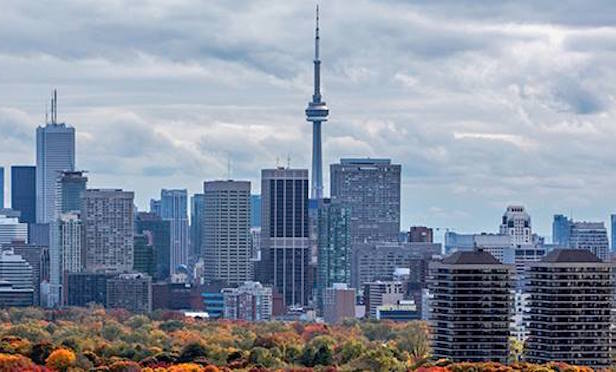
ZURICH—More of the world's major urban housing markets are at risk of a bubble than in 2016, UBS Wealth Management Chief Investment Office said Thursday. Topping this year's Global Real Estate Bubble Index is Toronto, a new entrant.
As they were last year, Stockholm, Munich, Vancouver, Sydney, London and Hong Kong are also still at risk of a bubble. Joining them is Amsterdam, which was merely overvalued last year. The only undervalued city in the UBS study is Chicago, with three quarters of the 20 cities studied either at risk of a bubble or overvalued.
San Francisco remains the most overvalued US city in the study, followed by Los Angeles. Also in overvalued territory among global gateway cities are Paris, Frankfurt, UBS' headquarters city of Zurich, Geneva and Tokyo. Boston and the New York City metro area are fair value, as are Milan and Singapore.
UBS cites expectations of long-term price gains as a partial explanation of demand for housing investment in major global cities. Many market participants expect the best locations to reap most value growth in the long run; it's the so-called “superstar” model, buoyed by the growth of high-wealth households.
Falling mortgage rates over the past decade have also made buying a home vastly more attractive. As long as supply can't increase rapidly, many buyers see “superstar city” prices decoupling from local rents, incomes and national price levels, says UBS.
Helping to give the superstar narrative additional credence in recent years has been a surge in international demand, especially from China, which has crowded out local buyers. An average price growth of almost 20% in the past three years has confirmed the expectations of even the most optimistic investors.
“This thesis has helped fuel overvaluation and even bubble risks in most major urban housing markets in advanced economies globally,” says Matthias Holzhey, head of Swiss real estate for UBS WM CIO. “Taking less risk in overheated markets has historically paid off on average: they delivered worse returns over a full boom-bust period than more balanced markets did.”

ZURICH—More of the world's major urban housing markets are at risk of a bubble than in 2016, UBS Wealth Management Chief Investment Office said Thursday. Topping this year's Global Real Estate Bubble Index is Toronto, a new entrant.
As they were last year, Stockholm, Munich, Vancouver, Sydney, London and Hong Kong are also still at risk of a bubble. Joining them is Amsterdam, which was merely overvalued last year. The only undervalued city in the UBS study is Chicago, with three quarters of the 20 cities studied either at risk of a bubble or overvalued.
San Francisco remains the most overvalued US city in the study, followed by Los Angeles. Also in overvalued territory among global gateway cities are Paris, Frankfurt, UBS' headquarters city of Zurich, Geneva and Tokyo. Boston and the
UBS cites expectations of long-term price gains as a partial explanation of demand for housing investment in major global cities. Many market participants expect the best locations to reap most value growth in the long run; it's the so-called “superstar” model, buoyed by the growth of high-wealth households.
Falling mortgage rates over the past decade have also made buying a home vastly more attractive. As long as supply can't increase rapidly, many buyers see “superstar city” prices decoupling from local rents, incomes and national price levels, says UBS.
Helping to give the superstar narrative additional credence in recent years has been a surge in international demand, especially from China, which has crowded out local buyers. An average price growth of almost 20% in the past three years has confirmed the expectations of even the most optimistic investors.
“This thesis has helped fuel overvaluation and even bubble risks in most major urban housing markets in advanced economies globally,” says Matthias Holzhey, head of Swiss real estate for UBS WM CIO. “Taking less risk in overheated markets has historically paid off on average: they delivered worse returns over a full boom-bust period than more balanced markets did.”
© 2025 ALM Global, LLC, All Rights Reserved. Request academic re-use from www.copyright.com. All other uses, submit a request to [email protected]. For more information visit Asset & Logo Licensing.









